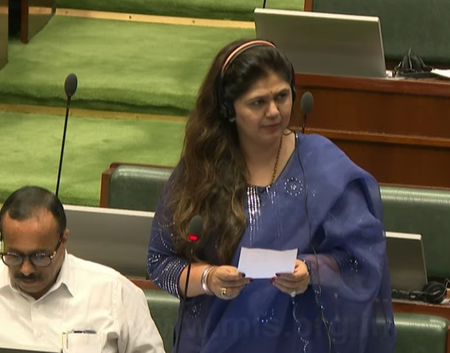

Mumbai, July 11 (IANS) In a major policy shift, the Maharashtra Cabinet has granted agricultural status to livestock farming, aiming to bring significant relief and new benefits to farmers engaged in dairy, poultry, goat, and pig rearing.
Animal Husbandry Minister Pankaja Munde announced the decision in the state Assembly on Friday, stating that the move is intended to support small livestock farmers in rural areas and will not benefit large commercial entities such as hatcheries.
She said Maharashtra is the first state in the country to accord agricultural status to livestock farming.
Munde told the Assembly that the decision will benefit 76.41 lakh families involved in livestock farming, with an expected increase of Rs 7,700 crore in income through livestock production.
She also noted that while agriculture contributes 12 per cent to the Gross State Domestic Product (GSDP), the animal husbandry sector contributes 24 per cent.
“Poultry farms with up to 25,000 broilers or 50,000 layers, hatcheries with a capacity of up to 45,000, dairy units with up to 100 animals, goat/sheep farms with up to 500 animals, and pig farms with up to 200 animals will now qualify for agricultural electricity rates,” she said.
“They will also be eligible for subsidies on solar pumps and solar equipment, at par with the agriculture sector,” she added.
Munde said that livestock farmers will now receive up to 4 per cent interest subsidy on project loans taken through Kisan Credit Cards, under provisions similar to the Panjabrao Deshmukh Interest Subsidy Scheme.
Additionally, Gram Panchayats will levy agricultural tax rates on livestock and poultry farms, reducing the local tax burden on farmers.
“This move will promote sustainable farming, generate rural employment, and enhance economic stability in the sector,” said Munde, adding, “Its implementation is expected to bring a significant transformation in animal husbandry in Maharashtra.”
She also cited a 2021 NITI Aayog report, which highlighted the lack of planned and scientific management in the livestock sector and recommended steps to reduce financial risks for livestock farmers.
–IANS
sj/skp




